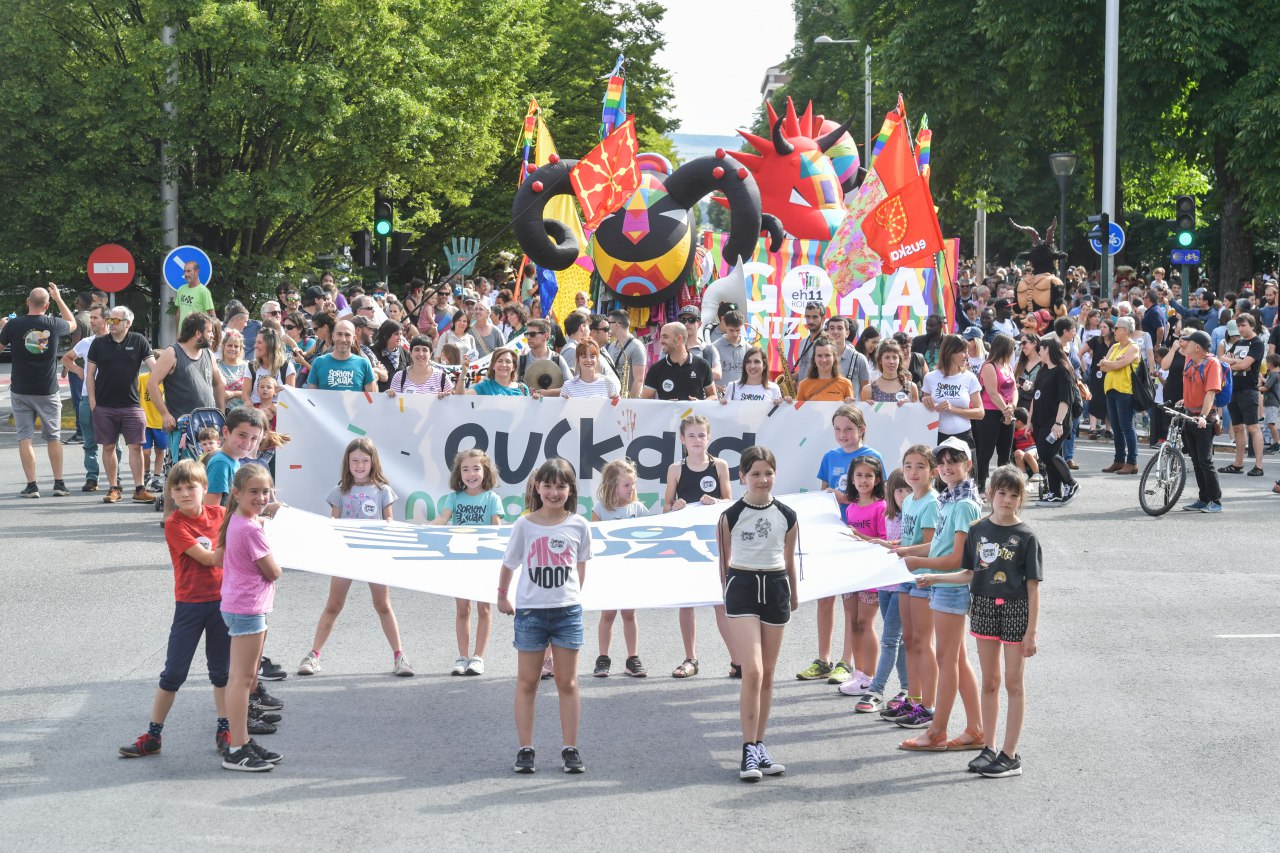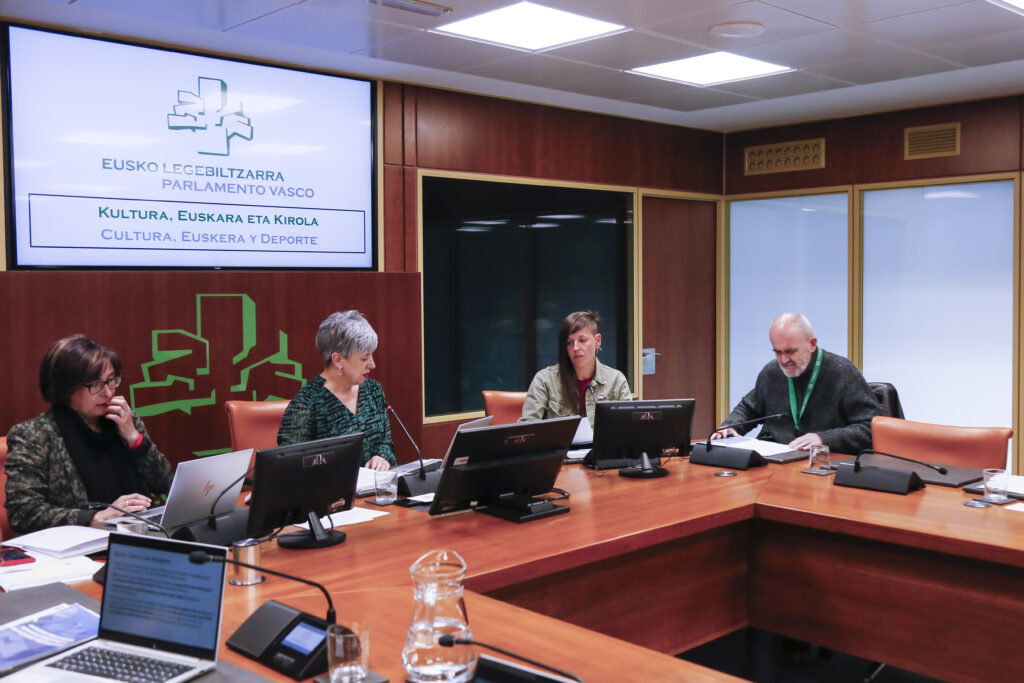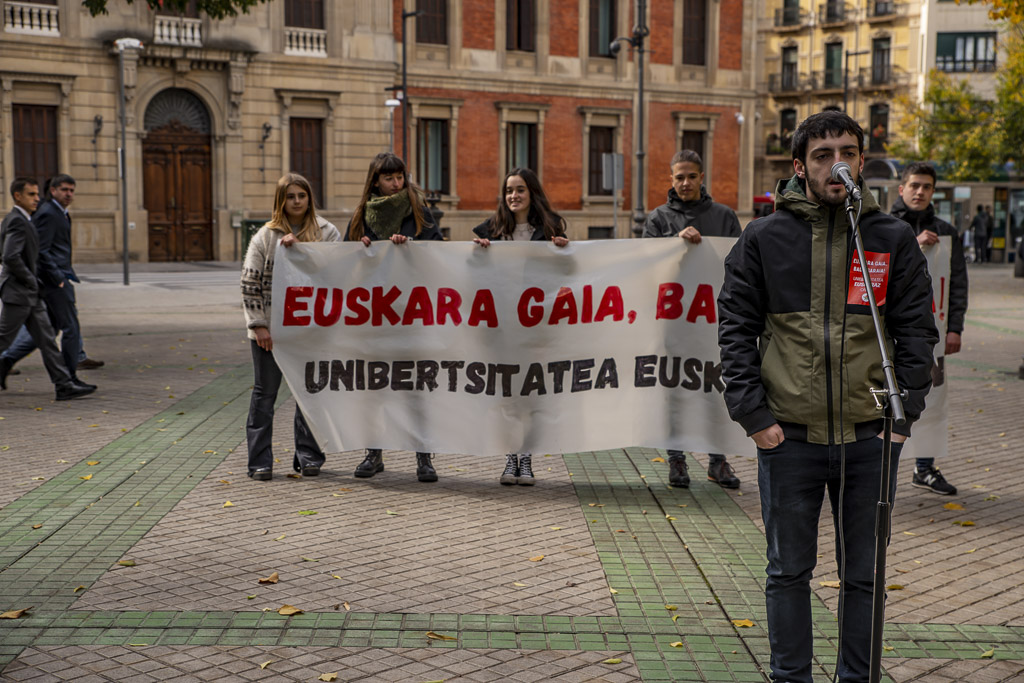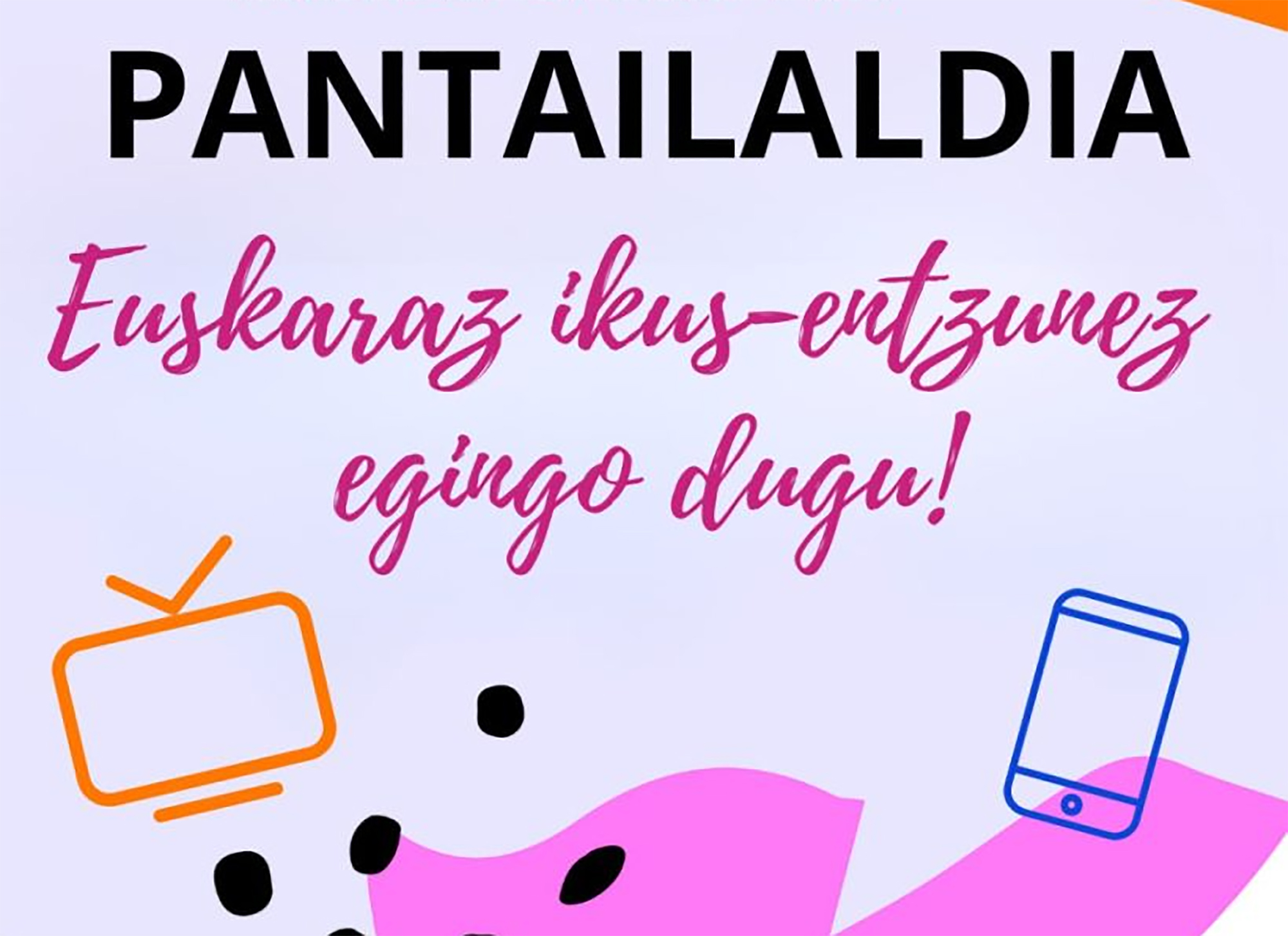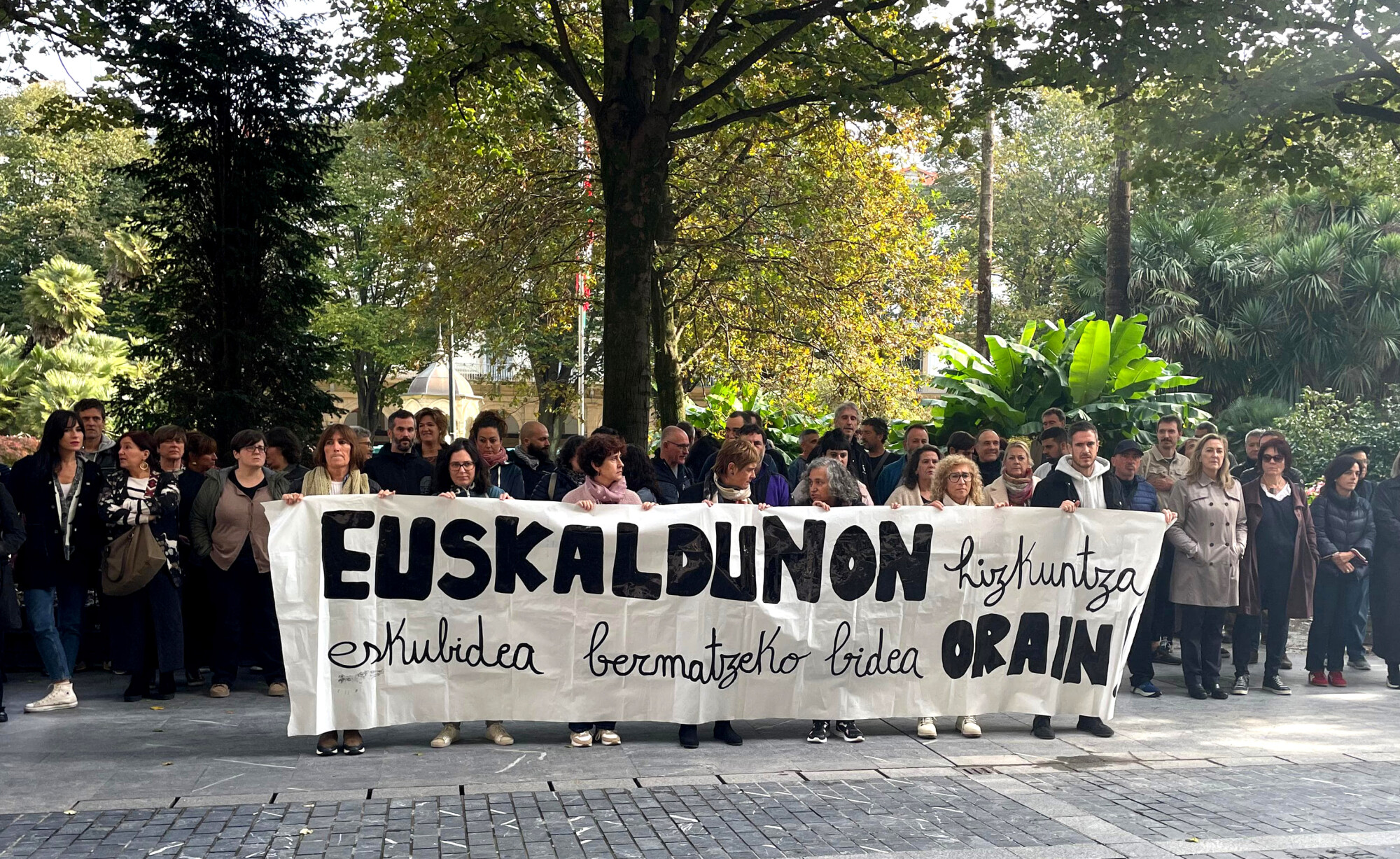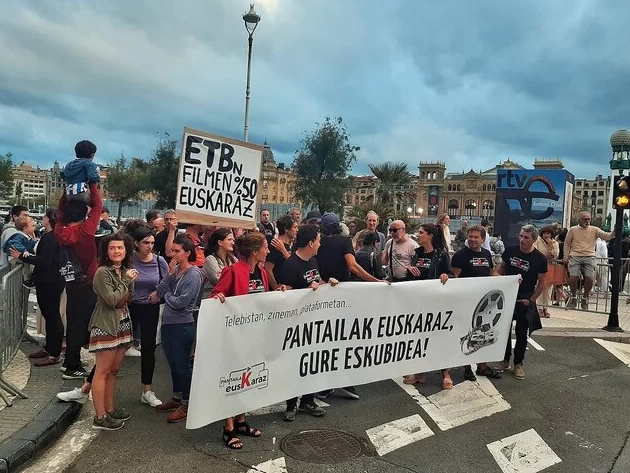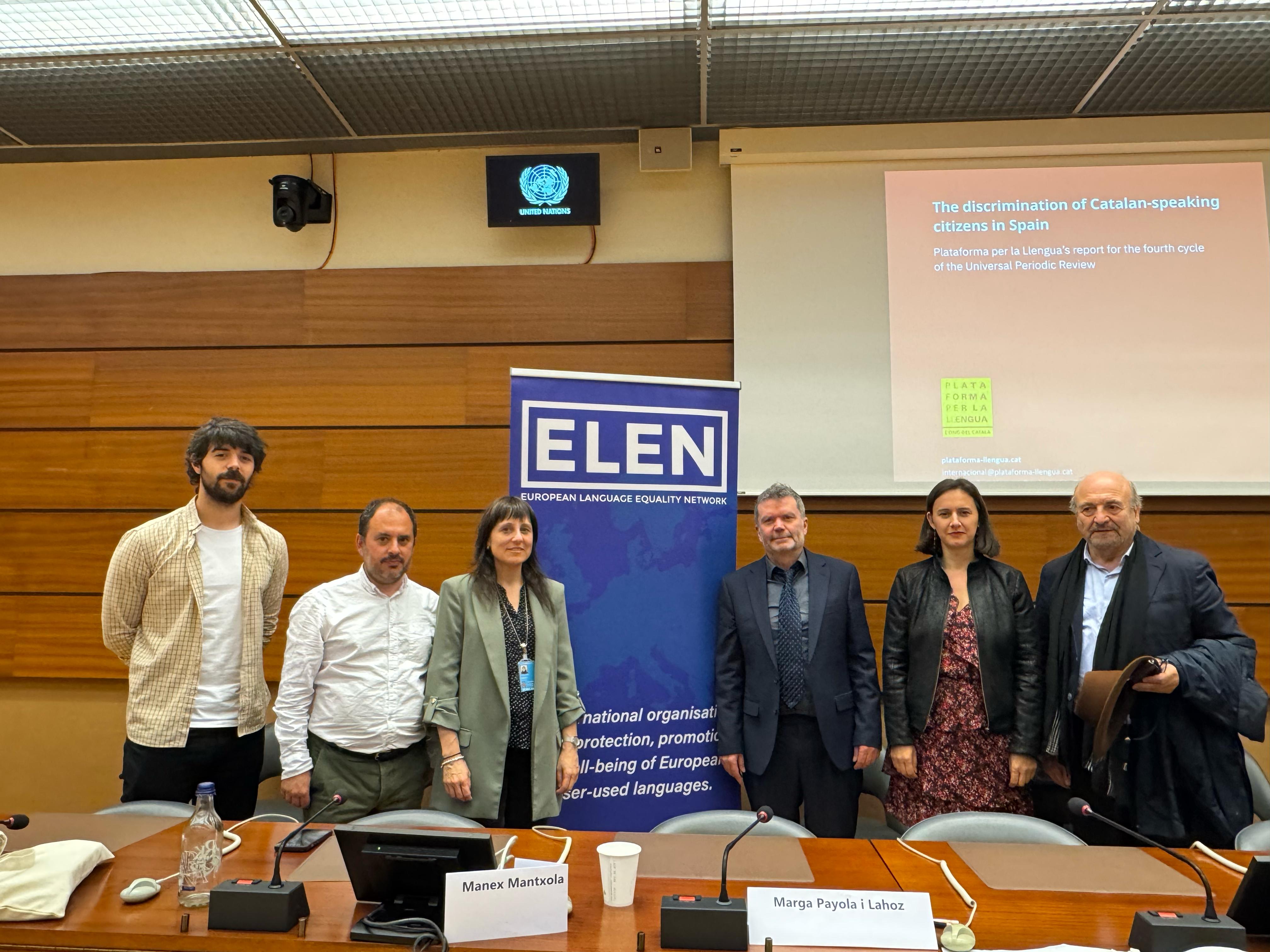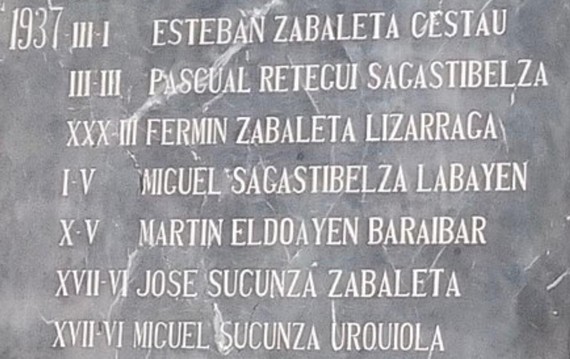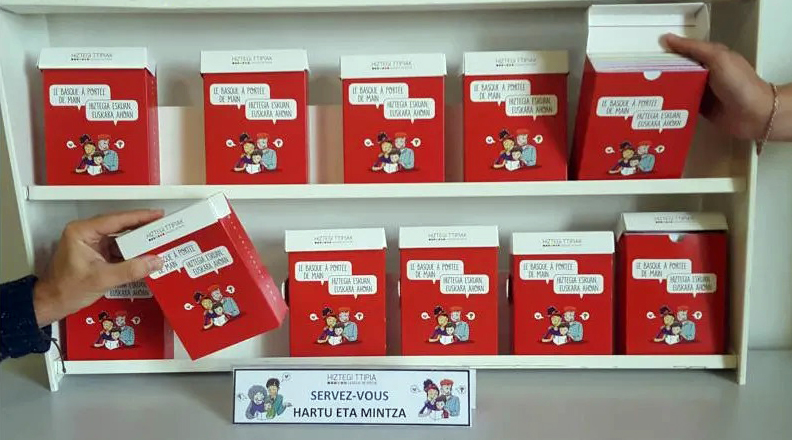Show us what we are to sell our own
- In the brand of the company, vasquity is one of the bases to sell, it serves to bring the customer closer, to give confidence. An example of this are Ternua and Euskal Herria Esne. The branding agency AZK has advised companies that have suffered these types of infringements on the route. At the round table organised by the IMH, three companies presented their thoughts.
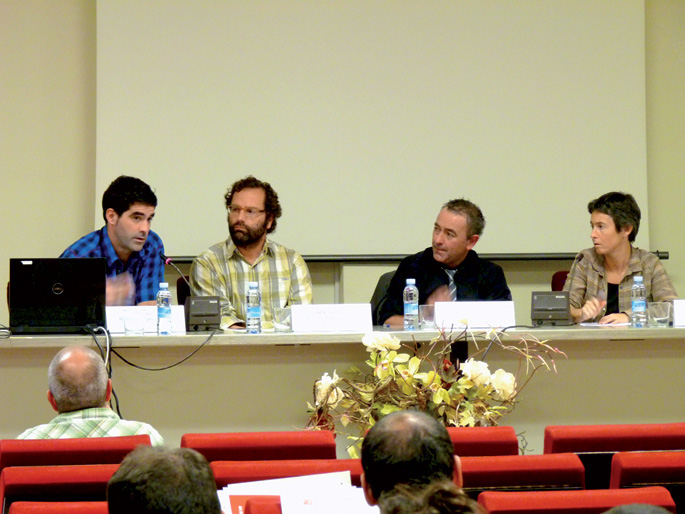
The Elgoibar Machine Tool Institute celebrated the 8th edition of the 30+10 Seminar on 23 October. Under the title “imh branding”, the issue of vasquity and brand was addressed: Basque brand, the brand of the Basque: 1,000,000 customers in 20,000 km2 and around the world waiting. Part of the brand, dialoguing with companies that have the status of euskaldunes. The participants were Rikardo Idiakez, of the clothing company Ternua, Edorta Azaola, of the branding agency AZK, and Julio Ibarra, of Euskal Herria Leche, who, as moderator, has signed this article.
Rikardo Idiakez, Ternua
Ternua is a sportswear company. It has the mark in Basque (Ternua) and the motto: I had the soul there, the leg. Being an international Euskaldun company, they manage Euskera, Castilian and English, for example, on social networks and on the web.
You are a Basque international brand, that is, your buyers are spread across different countries of the world. Why have you decided to speak in Basque too?
The Ternua brand is located in Arrasate (Gipuzkoa), in the municipality of Import Arrasate (Gipuzkoa), and was born in 1986. Ternua was born in 1994 as an internal business unit of the company. When the decision was made to create Ternua, the option to use Euskera was not an option either. Ours is a brand created about the Basque, the history and nature of the Basque Country, so the decision brought with it the use of the Basque country. Nature itself demanded it. Because of our internationalization, our desire has been to maintain the same nature and philosophy, and we have also maintained it in the new markets. An example of this is the motto, we maintain it: I had the soul there, the leg.
How do you approach the Basque or the Basque? Have you analyzed how you approach them?
We don't do any tests, we know that our brand is based on Euskaldunization. We study the opposite, how we should work the methodology of languages abroad, state and international. But I dare say that here most people know the brand because it's from here and it's based on nature and history here.
The brand and the motto in Basque, on social networks and on the web in three languages, what conclusions have you drawn from this management?
It is clear that we have the brand and the motto we have created in Euskera, we want to continue with it, because otherwise we would not be the same brand, we would be something else. We are clear, but we say that it is not easy at all. Here we have a motto that is easily perceived [Non gogoa, han hanoa], but it is not easy to move it to other countries. We have had to think strategies and make decisions and we know that in the future we will also have to take
decisiones.La web is available in three languages [Basque, Spanish, English]. On Facebook, we have a single channel for the entire audience. Our strategy is simple, we manage three languages – we will use them more in the future. We take into account who the message is for and we bet on one language or another, as well as language combinations. If we do it right or wrong, time will tell.
What strategies do you have to address the concerns of language management to customers?
When we address the people of the state, many do not understand very well the use of Euskera, for the arguments we all know. In the State, however, it is clear that our users use two languages and we try to use both. We have received and will receive opposing opinions, and our strategy is transparency: explain that we are this and this and that we want to work that way.
Where do resistance come from?
We have talked about negative views, but also positive ones. There are people who value our philosophy and that supports and strengthens our strategy. In South America there are many people of Basque origin, for them our brand is one of the ways to connect with the land here, besides buying certain products, it has other emotional elements. We are proud of it, that is what we want to convey.
Julio Ibarra, Euskal Herria Esneaz
Its starting point is Bizkaia Esnean. A total of 56 baserritarras from the Karrantza Valley started the project with the objective of making milk from the area available to the Vizcaínos. Today, in order to open it to the market of the entire Basque Country, the brand is called Euskal Herria Esne. They are centred on the Basque Country, among other things, product labelling is entirely in Basque.
Why have you decided to label Euskal Herria Esne only in Basque?
Euskal Herria Esneak, Ternua and other companies of the Basque Country have decided to use Euskera, or we will use it only in Euskera. You have to take the resort off the top, or at least try. Why do we have to try to put aside the resort of using the Basque? I listened to music in English when I was young, and we didn't know a word of that language. However, we had no problem because it was in English or in Spanish or in Basque. What was the point? Quality and scope. If you like the singer, the music or the record, it doesn't matter if it's in English or in Romanian. We have to remove the complex that we have with regard to the Basque country from the top. Language is not essential to go to market.
But you say that the product that speaks Basque is special for Euskaldun.
In Euskal Herria we Euskaltzales put positive discrimination on the Basque side, I do not know how long this issue will last. If we see a product of the Basque brand on holiday in Murcia [Spanish State], which has a word in Basque, we like it even more expensive. Within us we have the attitude, the wager or the militancy in favor of the Basque country. If you want to sell outside and you do it in Euskera, you may have difficulties for political reasons or for prejudices. The opposite is true here. If the Basque Country were like Spain, France or Italy, there would be no linguistic militancy. It is right that the Basque people should be taken advantage of and bet on, but it must be borne in mind that this attitude is partly due to the situation we live in. That would not be the case in a standardised situation.
Euskal Herria Esne has not been created in the most Euskaldun region.
The wager has been made on the orders of Bizkaia, in Karrantza, without complexes. Perhaps milk producers in Euskaldunes think: “If we do it only in Basque, we do not know how the market will respond…”. Look where the bet comes from. If you say that what you are selling is homemade, what you are doing here, that goes home every day, talking only in Basque gives the brand a plus.
Edorta Azaola, the AZK experience
The Basque branding agency, AZK, was founded in 1987 in the Gipuzkoan locality of Arrasate. It is currently a branding and communication company located in Arrasate and San Sebastian. They perform image and brand communication jobs for many customers.
You have said that: brands with authenticity, consistency and origin are the most valued. What do these terms mean?
We are in a global market, there are many brands, so we have to look at the difference and the uniqueness when it comes to working the brands. Taking as an example Ternua, origin and authenticity distinguish it, and that's necessary to create a brand. Behind there is a story and you have to create stories to work with brands.
As for coherence, we must be the same as who we are and what we say. The market does not allow us to explain one thing and do not have the same real result. Rikardo referred to linguistic management; if we are from here, origin and language are added values, we cannot forget that we are looking at the market. We've worked with Ternua and I remember how some people said the motto should be in English [Non gogoa, they've zangoa]. If you keep your own language, it allows the person who asks you to tell your own story. It would not be the same to be a motto in English.
How are the prejudices generated by the use of one language or another dismantled?
They're dismantled by the market itself. They went to a market through a state association and placed the Spanish flag on all stands. We went with Ternua. It was a gesture against us, but this fact does not mean that you lose your original philosophy and your added values. The market makes people pessimistic.
Do you feel lonely in the way you're doing?
Rikardo Idiakez: It's an interesting question, because at the end of the day we're talking about selling, our company has to sell to survive and profit. I liked a phrase that I heard: “The market has no complexes.” We too want to act like this, without complexes, we want to explain what we are, knowing that we will have difficulties and that we will have to take many decisions. Competitiveness? Here we do not have much competition in mountain clothing, but in Spain we do, and let us not say in the international arena. To compete abroad, we haven't mentioned it, but without good product, we don't go anywhere, and the other, we need a character or a strong brand, and we think we have it. It happens to almost everyone, here we think we are something, we go to the world and we are nothing. So, how can we differentiate ourselves? We put it in the window and offer the market our history and our brand. Others also have their brand, but we think ours is special.
Edorta Azaola: The competition is there, the language gives us closeness to the client and confidence. July said that when we see a word in Basque in Murcia we open our eyes. Here too, doing in Spanish or in Basque is not the same thing.
Julio Ibarra: I said that we used to buy music in English. Today, companies pay a lot of money to put ads in prime time. Be water [Be water] says the ad. They announce colonies with names in English and French, and it says: “That has to be terrible!”, though I haven’t understood anything. Why in English or French? Because it's more modern? No. Because it brings a plus to the product. It's sold more even if people don't understand it.
Euskaraldiaren atarian, beste behin, Pantailaldia egingo da. Maiatzaren 6tik 15era iraungo du, eta euskarazko ikus-entzunezkoen kontsumoa sustatzea izango da helburua.
Baina non gaude, non dago euskara ikus-entzunezkoen mundu zabalean, nora goaz? Zein hutsune, zein erronka... [+]












